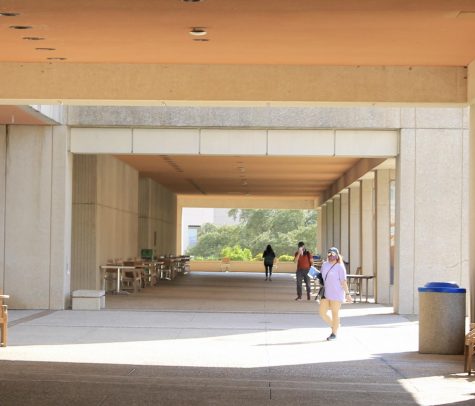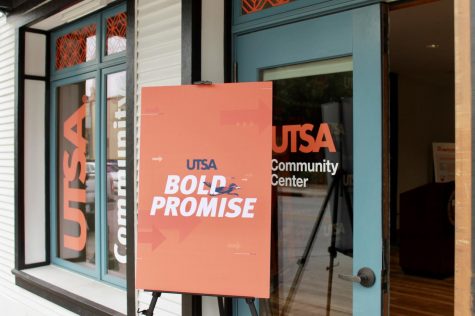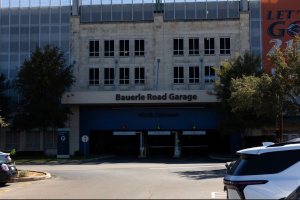Historic $40 million gift: one component in equation for student success
June 27, 2021
On June 15, MacKenzie Scott and Dan Jewett demonstrated their appreciation for higher education by gifting UTSA $40 million. As one of the wealthiest women in the world, Scott made it a goal to support historically underserved communities. With UTSA being a Hispanic Serving Institution, this gift could aid students academically and financially. UTSA is an institution with 75% of its population receiving financial aid. The donation was meant to help bridge the gap between student success and income disparities; its use is unrestricted.
In an announcement to the community, President Taylor Eighmy said, “We look forward to announcing specific plans for this gift later this year.”
Student Government Association President Jose Escobedo said the gift is one component to student success.
“The greatest barriers to any student will always be time and money. For UTSA, these issues are felt even more so by the working-class student population who sacrifice so much for a college education,” said Escobedo.
“Another barrier to student success is an academic curriculum that refuses to adapt to the needs of a changing student population – on this front, UTSA is on the right path, but there is still plenty of work to do.”
Escobedo has specific recommendations for the unrestricted gift.

“$40 million is an incredible amount of money to receive by any university, but if we do not invest in our endowment then it will only last us so long. That’s how universities like UT and A&M have been able to stand the test of time and are able to accomplish long-term goals. Whatever amount we don’t invest, I believe we should utilize it to update our classroom technology capabilities in order to meet the 21st century standard and reach more students where they are at,” said Escobedo.
“Another use of the funds can be to bulk up our financial aid programs and lessen the financial burden wherever we can – we can also expand the numbers of work-study and hourly jobs available to students.”
The intent of Scott and Jewett’s donation will affect current and future UTSA students. With UTSA’s 10-year Vision focusing on increasing the number of students and faculty, reaching Carnegie classification, retaining students and building more campuses, strategic planning is essential.
“It is my hope that this gift will be one that keeps giving if we are able to make long-term plans for its use. For our current students, by investing in financial aid and making immediate classroom technology updates, we can drastically improve the learning environment in the span of just an academic term or two,” said Escobedo.
To support students on their path to graduation, UTSA has created many programs. An unrestricted gift of this magnitude could serve as a catalyst in the process of recruitment and retention.
“I believe the Bold Promise program has been an incredible step towards closing the education gap and should absolutely see continued support, as well as our First-Year programs that aim to retain our freshman and transfer students,” said Escobedo.


“There are so many student initiatives that deserve attention but if we are able to help our students attain a meaningful education that leads to employment with as little financial burden as possible, then we’d be doing our jobs,” said Escobedo.
Many people feel strongly about the way UTSA will use the gift, including former SGA President Taylor Edwards.
“As the old saying goes: “Money doesn’t fix everything.” Change can be fought for, but not bought. Of course, there are many areas that this money should go to: academic innovation (for training of professors and implementation of advanced/effective teaching methods as well as the restructuring of our classrooms), financial aid (for expanded scholarships) and student health services (for expanded emergency mental health services and otherwise basic medical needs).
“But do not be deceived. The real issue—the real barrier—cannot be removed with money, but only through the work of those who decide to finally care enough to demand change,” said Edwards.





